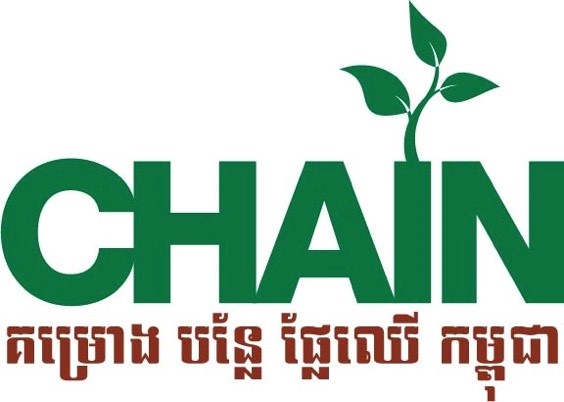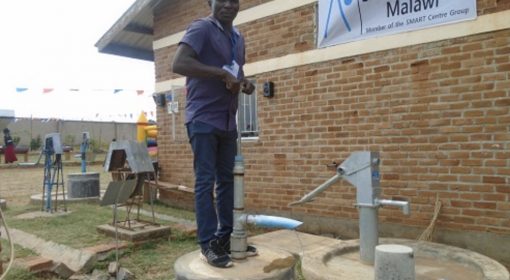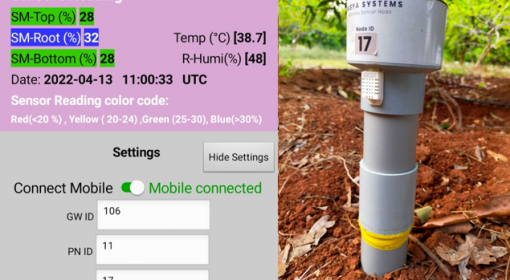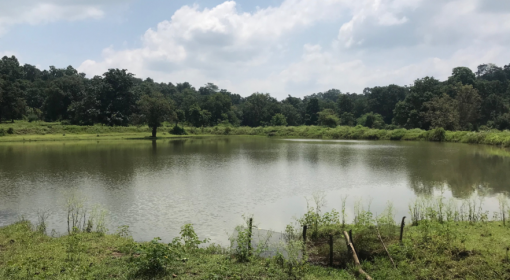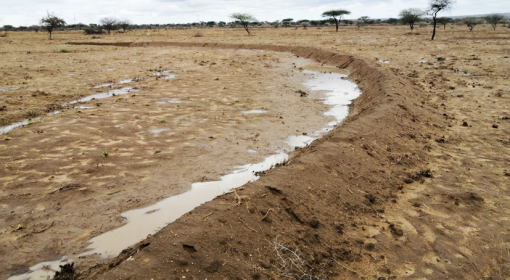by Naluch Lim and Meghna Mukherjee
February 16, 2021
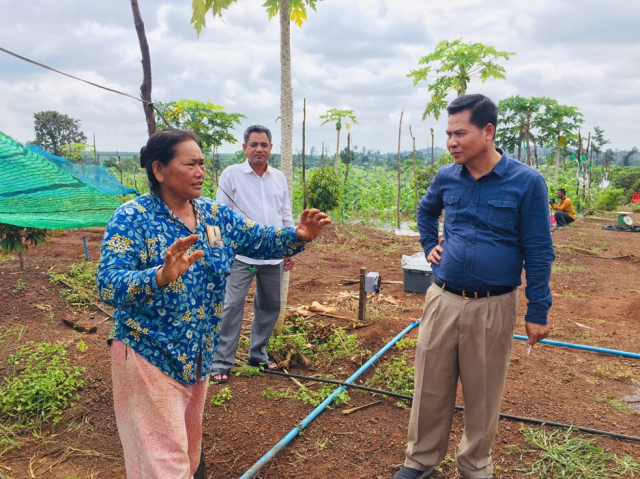
Im Naisreang is a 60-year-old commercial farmer in Preah Vihear region in Cambodia. She lives with her husband and grows various crops on their 4.5 hectares farm. Though the farm has easy access to water, irrigating the farm is challenging for the couple. Like many other farmers in the region, Im Naisreang could not dependably abstract water to irrigate her crops for a long time, due to an old unreliable pump which she was using. She knew that if she waited for the mechanic to fix her failing pump machine, her crops would soon fail. So, unable to water her crops on time, she dropped out of a contract with Remic (a premium vegetable buyer in Phnom Penh) to supply vegetables.
In July 2020, she came across the Cambodia Horticulture Advancing Income and Nutrition project (CHAIN) Project implemented by SNV and partners. Through the project, she joined the ‘district water dialogue’ to discuss issues related to water access and use. She expressed that she needed a more efficient water irrigation system for her farm. The CHAIN project and SNV supported Im Naisreang to buy a solar pump through a co-investment. The amount contributed by CHAIN was 500 USD, Im Naisreang made a financial contribution of 1300 USD. The solar pump could supply up to 25 cubic meters/day , which was more than her daily irrigation requirement of 20 cubic metres/day.
“It was hard for me. I had no confidence to sign the supply contract with the company [Remic] because, though I have enough water for irrigating my crops, my unreliable machine often broke down. It took days for the mechanic to fix the old machine, and by that time, my crops often would already spoil. After using the solar panel to pump water and irrigate the whole farm all day, I decide to sign the contract to supply vegetable to my buyer.”
CHAIN Project
Im Naisreang is one of the many farmers who have benefitted from the CHAIN Project implemented in the four relatively remote and poor provinces of Cambodia: Oddar Meanchey, Preah Vihear, Stung Treng and Kratie. The project aims to strengthen the horticultural and agricultural market system and has a strong focus on women by promoting sustainable income growth, year-round production and reliable market linkages which will, in turn, contribute to a transformation of the horticultural sector.
The CHAIN project promotes smart water use in Cambodia to facilitate year-round irrigation, local job creation, and raising incomes. The project also improves water resource management by implementing wet watershed measures along upland and midland areas and enhancing soil moisture through different techniques to help farmers cope with dry spells during the cropping season. CHAIN has also helped farmers like Im Naisreang to invest in smart water technologies, and has provided training on solar irrigation systems and soil moisture management.
Smart Water Solutions
Im Naisreang is a very active farmer and has participated in all the trainings provided by CHAIN. She has gained extensively from the solar irrigation system and soil moisture alarm system. The system helps her irrigate crops on time. The soil moisture sensor was connected to the solar pump panel, which provides information related to soil moisture percentage. Based on this reliable information, she can decide when to irrigate her crops, thus saving lots of water. This proved to be an efficient irrigation system that she controls remotely, and it helps her conserve water and time. With time being saved, Im Naisreang now has time for other social activities.
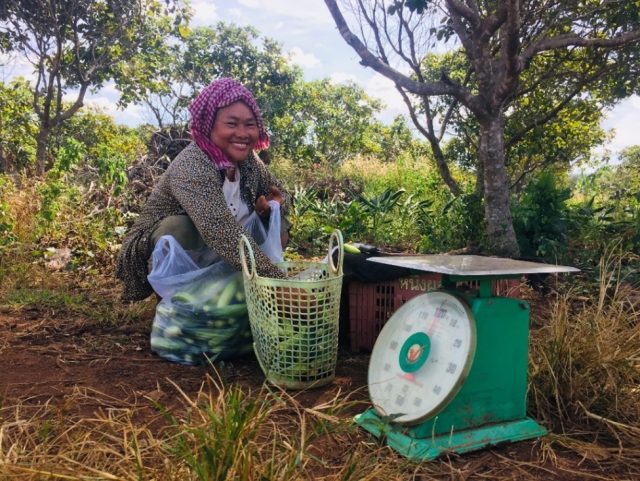
She has also enrolled in the ‘Farmer Water School’ to expand her knowledge on soil nutrition management so that her soil fertility can be managed sustainably. Talking about her experience, she says “Compared to what I did before with respect to soil nutrition management/practices, I see that my vegetables grow faster and the yield comes earlier than expected.”
Smart Water Solutions in the CHAIN Project includes the IoT system. The service is provided by a private company called ‘Smart Farm assistant’. This service has been demonstrated at Im Naisreang’s farm and is expected to influence other farmers to adopt similar service after seeing the results on her farm. Reflecting on her experience, Im Naisreang says “One day; I was with other folks waiting for monks to chant. I told my friends that I needed to irrigate the farm on my phone. My friends did not take me seriously and said that I am only using Facebook for fun”.
Later on, she brought her friends to the farm to collect vegetables and showed her friends how she uses the phone to switch on the irrigation system even if she is not physically present. The adoption of technology and solar irrigation system has helped her to supply vegetables to national markets and earn good revenue. Even after investing 1300 USD on the solar pump, Im Naisreang is confident that she will get her money back within two years. About the solar pump, she says, “It saves me a lot of money. Every day, I had to spend $4 – $5 for diesel to irrigate the crops. Now I spend zero dollars with the solar system, except the initial investment. I think in 1.5-2 years, the solar irrigation system could pay back what I spent on it.”
Bright Future
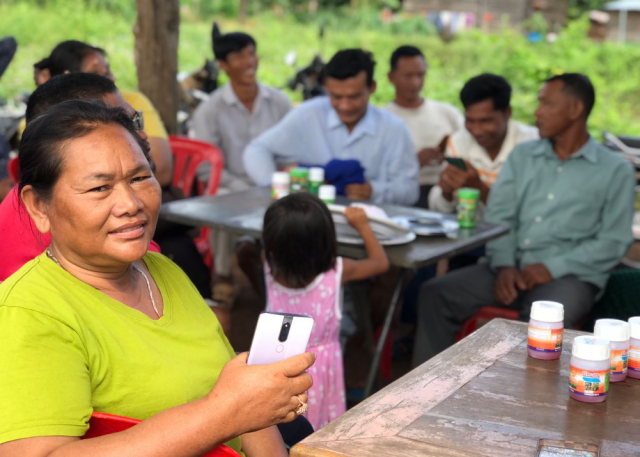
The journey of Im Naisreang has inspired others in the village to follow the same route. After seeing her success, people were confident in investing in new technology, irrigation, and water management practices. Talking about her plans, Im Naireang says “I want to build a bigger water reservoir on a hill that could store 20 cubic meter of water to irrigate my crops. I plan to use solar energy for irrigation during the day and will use a diesel pump at night. This would increase my vegetable production and expand my supply.”
